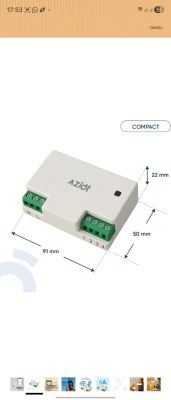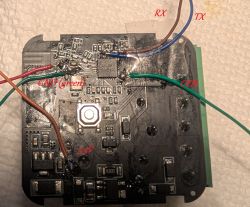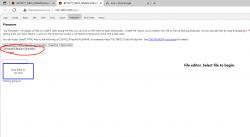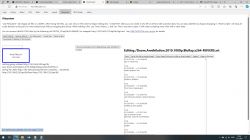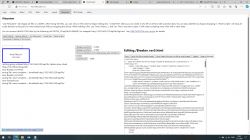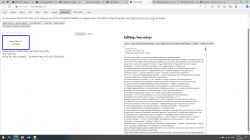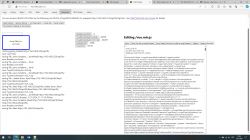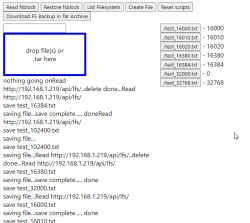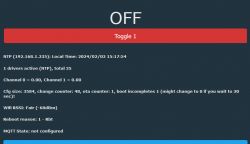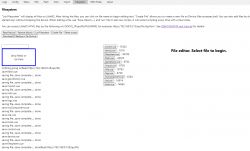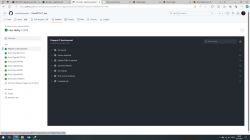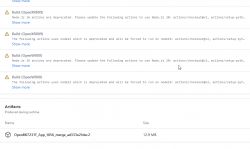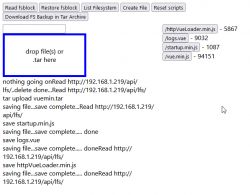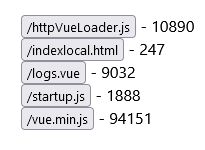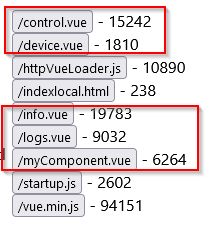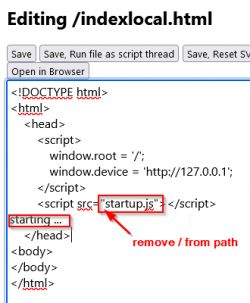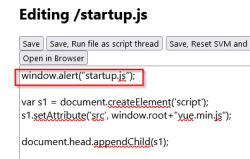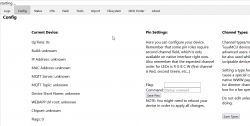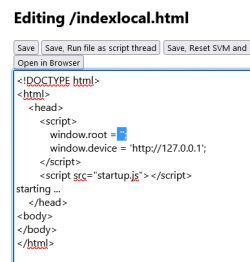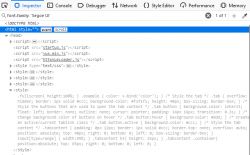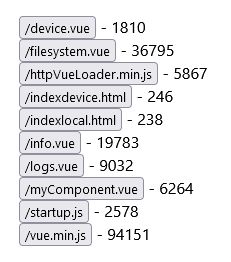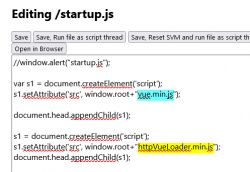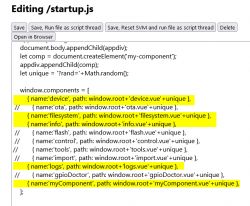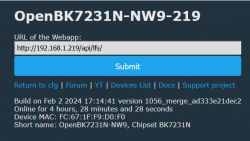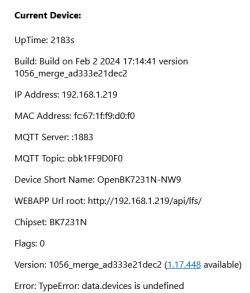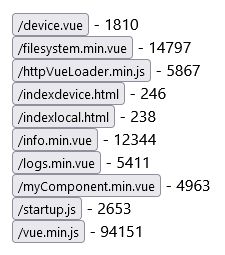Opening a new thread to continue discussion from Docker Image for OpenBeken IoT Web App Hosting - Post#13
It was concluded that the default LittleFS size is 32kB.
I am planning to host the following files in the device itself so that the 'Logs' option can be accessed in a closed network.
Some points to consider before doing this:
https://www.elektroda.com/rtvforum/topic4022819.html#20925110
https://www.elektroda.com/rtvforum/topic4022819.html#20925206
Plan:
Host following files in LittleFS:
Note that the paths within startup.js needs to be modified to access them within a single directory.
Also modify the path for the logs.vue and delete all other components:
Additionally will have to host one of the following files:
indexdevice.html
indexlocal.html
from https://github.com/OpenBekenIOT/webapp/blob/gh-pages/indexlocal.html
I haven't figured out which one yet.
To proceed I have used online JavaScript Minifier to reduce the size of the .js files.
Now with default LittleFS size I have consumed about 16kB as follows:

The file vue.min.js is about 92kB.
So my estimation shows that if LittleFS size can be increased to 128kB I should be able to get all the files needed in there (based on my assumptions of selected files).
How would 128kB LittleFS size impact OTA operations?
I really do not mind if it gets wiped out during OTA as I can always get them back in manually. I do not expect to do frequent OTA updates on this device anyway.
@taktlos
@Angel0fDeath
@p.kaczmarek2
It was concluded that the default LittleFS size is 32kB.
I am planning to host the following files in the device itself so that the 'Logs' option can be accessed in a closed network.
Some points to consider before doing this:
https://www.elektroda.com/rtvforum/topic4022819.html#20925110
https://www.elektroda.com/rtvforum/topic4022819.html#20925206
Plan:
Host following files in LittleFS:
/startup.js
/httpVueLoader.js
/vue.min.js
/logs.vueNote that the paths within startup.js needs to be modified to access them within a single directory.
var s1 = document.createElement('script');
s1.setAttribute('src', window.root+"vue.min.js"); <================
document.head.appendChild(s1);
s1 = document.createElement('script');
s1.setAttribute('src', window.root+"httpVueLoader.js"); <=============
document.head.appendChild(s1);
Also modify the path for the logs.vue and delete all other components:
window.components = [
{ name:'logs', path: window.root+'logs.vue'+unique },
];Additionally will have to host one of the following files:
indexdevice.html
indexlocal.html
from https://github.com/OpenBekenIOT/webapp/blob/gh-pages/indexlocal.html
I haven't figured out which one yet.
To proceed I have used online JavaScript Minifier to reduce the size of the .js files.
Now with default LittleFS size I have consumed about 16kB as follows:

The file vue.min.js is about 92kB.
So my estimation shows that if LittleFS size can be increased to 128kB I should be able to get all the files needed in there (based on my assumptions of selected files).
How would 128kB LittleFS size impact OTA operations?
I really do not mind if it gets wiped out during OTA as I can always get them back in manually. I do not expect to do frequent OTA updates on this device anyway.
@taktlos
@Angel0fDeath
@p.kaczmarek2





